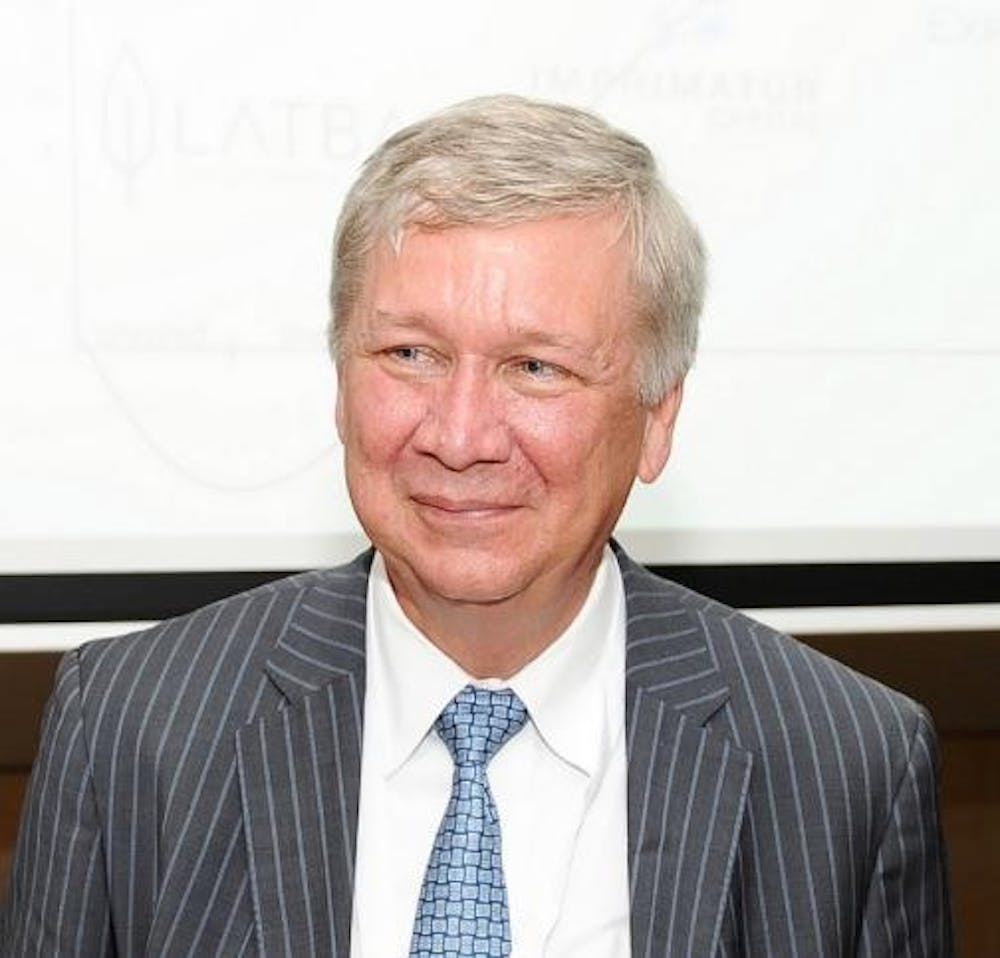Eric Suuberg, a professor of engineering and technology entrepreneurship, received the 2024 Distinguished Researcher Award from the Energy and Fuels Division of the American Chemical Society.
Suuberg said it was a “complete shock” when he received an email from the chair of the selection committee informing him of this honor about a month ago.
“It is wonderful to see the Energy and Fuels Division of the American Chemical Society honor (Suuberg) with this award,” Dean of Engineering Tejal Desai wrote in an email to The Herald.
Suuberg completed his doctorate in chemical engineering at MIT and has worked at Brown since 1981. He collaborated with Professor Emeritus Joe Calo to create Brown’s chemical engineering program.
Suuberg said that the program worked well at the University because “Brown is a very flexible place.”
Despite the difficulties of starting a new division in the School of Engineering, “so much of the infrastructure was already in place” with the pre-existing curricula in the School, Suuberg said.
Suuberg “has been recognized as one of the most impactful researchers in his field and has trained and mentored many leading scientists,” Desai wrote.
According to Suuberg, he and Calo designed the program to prepare students for various subfields of chemical engineering, ranging from chemical processes to biochemical engineering.
In 1999, Suuberg and then-colleague Greg Crawford recognized that a substantial portion of students graduating from the engineering program pursued entrepreneurship. As such, he wanted to offer a course to provide “more background that could help (students) in a technology/startup environment,” Suuberg said.
Crawford and Suuberg started a course in entrepreneurship for engineers which subsequently expanded to become the Master of Innovation Management and Entrepreneurship program.
Outside of Brown, Suuberg served as a principal editor of the journal “Fuel” from 2000 to 2021, which he said is “arguably the most well-known journal that covers the topic of fossil fuels.”
“Being a principal editor of the journal ‘Fuel’ for over a decade speaks volumes” and bolsters Suuberg’s identity as “a star in the field,” Indrek Külaots MS’00, PhD’01, a distinguished senior lecturer in engineering, wrote in an email to The Herald.
Much of Suuberg’s research is focused on the intersection between chemical and environmental engineering. His PhD research focused on the chemical process of producing gas from coal, which led to an interest in how these processes pollute the surrounding environment.
He spent much of his career focused on polycyclic aromatic hydrocarbons, a byproduct of these gas-making processes, which further contribute to pollution. Recently, he has focused on per- and polyfluorinated substances, commonly known as PFAS.
“These are small molecules that have been used in a tremendous number of different applications, one of which was trying to prevent wetting of clothing or carpets by either water or grease,” Suuberg said.
PFAS have been used in products ranging from food wrappers to fire-fighting foam. This practice became problematic when a study revealed that “exposure to low levels of (PFAS) can cause everything from propensity to obesity to certain kinds of cancer,” Suuberg said.
Because of its widespread use, PFAS chemicals have been widely released into the environment, particularly groundwater that has soaked up the chemicals from fire-fighting foam and is now circulating in the water supply.
Suuberg aims to complete “fundamental work related to the properties, but also looking at how to design carbons … that can absorb these PFAS so that you’re not drinking it with the water,” he said.
Suuberg has also completed similar work focusing on other pollutants.
Jillian Goldfarb PhD’08, a professor of chemical and biomolecular engineering at Cornell, studied in Suuberg’s lab, researching the thermodynamics of coal tar mixtures. Much like Suuberg’s work, her research provides “key information to environmental risk exposure assessments to predict how these contaminants move in the environment and the risk they pose to people.”
Goldfarb commended the freedom that Suuberg granted in allowing her to pursue her own hypotheses, stating that she “wouldn't be the mentor or professor (she is) without his support.”
Külaots, who was also mentored by Suuberg, wrote that he “is certainly a mentor who makes sure that the advisee will make progress with the project” and that he “felt his strong hand of support” during his thesis process.
Suuberg will be honored during the next ACS meeting in Denver, which he described as “the go-to meeting for people in (his) field.”

Francesca Grossberg is a staff writer covering Science and Research. She is a sophomore from New York City studying Health and Human Biology.





